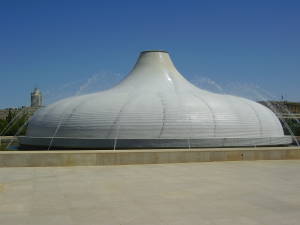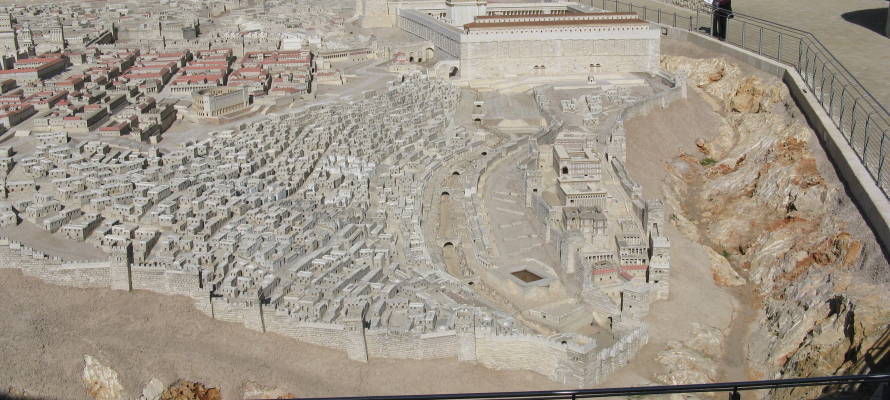The Second Temple model at the Israel Museum is a fascinating creation well worth seeing. It is situated near the Knesset, the Supreme Court, the Bible Lands Museum and other interesting sites.

If you want to see what Jerusalem and the Temple looked like just before they were destroyed in 70 CE, there is no better place to go than the Israel Museum. The Israel Museum is home to an amazing model that allows you to get a glimpse of ancient Jerusalem in all its glory.
When I bring tourists to the model, their mouths literally drop open when they see it for the first time. The model was originally commissioned by Hans Kroch, who was the owner of the Holy Land Hotel located in the Bayit Vegan section of Jerusalem, in memory of his son Jacob who fell in the War of Independence in 1948. In 1962, he approached Michael Avi-Yonah, professor of archaeology and history at the Hebrew University of Jerusalem. He asked him to replicate Jerusalem, the Temple and the topography of the city as it would have looked just prior to the destruction in the year 70 CE by the Romans. Avi-Yonah agreed and it took him four years to complete the project. Finally in 1966 the model was accessible. It immediately became a popular destination for tourists. I remember visiting it in the early 1970s with my parents on my first trip to Israel.
The model is on a scale of 50:1 and is spread over almost one acre. In 2006 when Hans Kroch sold the Holy Land Hotel he searched for a new home for the model. Ultimately, it was transferred to the Israel Museum where it is situated right next to the building that houses the Dead Sea Scrolls. Considering that the scrolls are circa end of the Second Temple period, this juxtaposition is highly appropriate. It allows you to see what Jerusalem looked like as the Dead Sea Scrolls were written.
The model was sown in to over 1,000 pieces and transferred by truck, costing the Holy Land Hotel about 3.5 million dollars. Over six days workers, trucks and engineers labored to move the delicate pieces and re-assemble them at the Israel Museum.

Shrine of the book, a wing of the Israel Museum housing the Dead Sea Scrolls. (Wikimedia)
The model can be viewed from above, east to west, as if seeing the city from the Mount of Olives. Alternatively, you can walk around the model and see it from any and all angles. Either way, it is breathtaking. The ancient Jewish sages remarked, “Ten measures of beauty were given to the world; nine were taken by Jerusalem.” When looking at the model, it is easy to understand their inspiration.
The original model was designed and built between 1962 and 1966, before Jerusalem was unified in the Six Day War of June 1967. Hence, access to half the city was denied to Avi-Yonah, and some of the model had to be designed based on conjecture. After the Six Day War, when Avi-Yonah had access to the entire Jerusalem and new archaeology, the model was updated to reflect the new information gleaned. Some buildings were added or modified, and others were removed. Knowledge of ancient Jerusalem is dynamic, so until this very day, there is much debate about the accuracy of parts of the model. For example, parts of the model have buildings with orange-tiled roofs, yet it is uncertain whether or not they were in fact in use during the Second Temple period.
Hillel Charney, Kroch’s grandson, discusses part of his grandfather’s motivation to build the model. When it was constructed in 1966, “that was the time that Israelis could only dream about the Western Wall and the Temple Mount, but could not approach them,” said Charney. “Grandpa decided to bring the Temple to them.”
If you are planning to visit the model at the Israel Museum, you can also visit the Knesset, the Supreme Court and Bible Lands Museum, which are all located in the same area. It will be a day very well spent.










